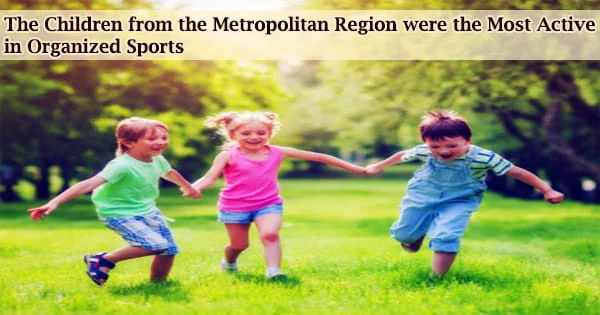In the Finnish setting, a recent study with 3 to 7-year-old children demonstrated how children’s daily living environment and motor skills are closely associated. The key study demonstrated that children’s motor skills, participation in outdoor play, and organized sports are all linked to residential density.
It was discovered that Finnish youngsters who grew up in the countryside spent more time outside and had stronger motor abilities than their city-dwelling counterparts. Children in the metropolitan region, on the other hand, were the most active in organized sports.
Motor abilities include locomotor, object control, and balancing skills, which are all used in everyday activities such as running, climbing, and sketching. A good set of motor skills allows people of all ages and stages of development to participate in common games and activities, such as running and ball games.
“In early childhood, the mastery of basic motor skills is one of the main developmental task of the child. Motor skills enable children to participate in various physical activities and physically active play. Mutual plays and games enable children to have friends to play with. Moreover, motor skills are also crucial when it comes to school adaptation,” says PhD. student Donna Niemistö from the Faculty of Sport and Health Sciences, University of Jyväskylä.
Without practice, motor skills do not develop to their full potential. So far, we know that one out of every ten children has motor development deficits. These delays can make simple actions like putting on clothes, writing, and riding a bike more difficult.
In early childhood, the mastery of basic motor skills is one of the main developmental task of the child. Motor skills enable children to participate in various physical activities and physically active play. Mutual plays and games enable children to have friends to play with. Moreover, motor skills are also crucial when it comes to school adaptation.
Donna Niemistö
“Every child, with or without delays in motor skills, develops motor skills through repetition of the task. For the child’s development, it is crucial that (s)he has an opportunity to try, play and practise spontaneously. The parental presence while moving assures the child that practising motor skills is important and safe. Therefore, for example, summertime is an excellent period to move as a family, as nature enables versatile experiences and stimuli for the child’s motor development,” explains Niemistö.
Time spent outdoors and participation in organized sports promote children’s motor learning
The findings imply that spending time outside and participating in organized sports can help children develop their motor skills. In fact, Niemistö emphasizes the importance of spending time outdoors and participating in organized activities in purposes of societal equality.
Children find outside situations stimulating and motivating, such as huge yards with plenty of room to run and play. Walking, running, climbing, galloping, and jumping are all locomotor skills that require free running and playing. Large rooms and playing places are also important for honing object control skills.
“When a child feels as competent in a given motor task, (s)he will practise more, and through the increased repetition, (s)he will gain better motor skills,” underlines Niemistö.
When designing the setting, consider the child’s ability to move around in an age-appropriate manner, as well as its safety, variety, and independence. Finnish children enjoy unfettered access to the environment and the opportunities it provides thanks to common access.
However, in order to improve equality within the country, we must understand the variations in the settings and develop them equally, hence enhancing children’s equal opportunities for motor skill development.
The Skilled Kids study, which took place at the University of Jyväskylä from 2015 to 2017, included 945 children and their families from 37 different childcare centers around Finland.
The locomotor and object control skills of the children were examined using internationally recognized measures. A parental questionnaire asked about time spent outside and participation in organized sports.
Six daycare centers were located in the metropolitan region, 17 in cities, seven in rural areas, and seven in the countryside, based on residential density.
















